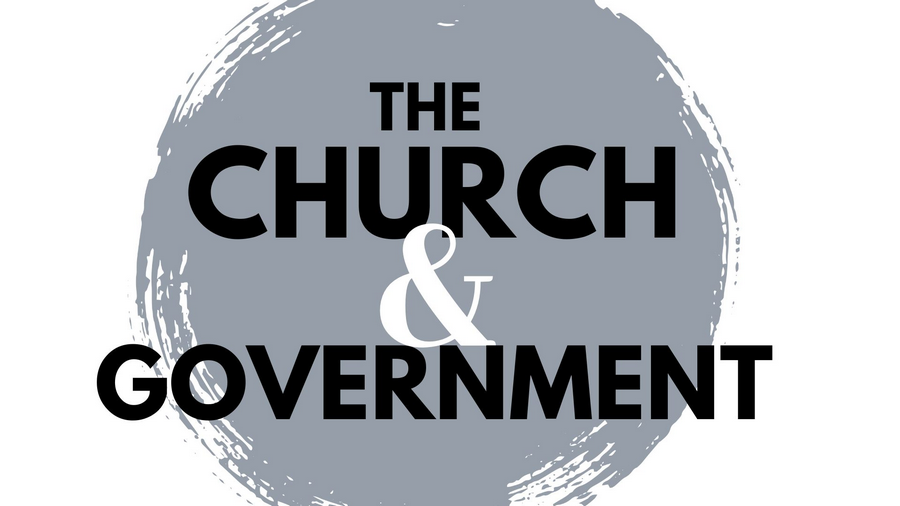In last week’s blog, we talked about governing authorities and how God is the one who establishes them. We illustrated that He is the source of their authority and explained why it is therefore important for us to submit to our leaders. As Christians, part of what it means to live peaceably with all men entails interacting with people in positions of authority as law-abiding citizens. We are not called to initiate or encourage rioting, looting, or any other form of destructive behavior every time a political or economic inconvenience or perceived social injustice comes our way. Instead, we are called to submit to our magistrates “not by way of eyeservice, as men-pleasers, but as slaves of Christ, doing the will of God from the heart” (Ephesians 6:6).
Does this mean that we cannot bring up issues and raise concerns that we have about certain laws, mandates, and regulations to our governing authorities? I am not saying that at all, for I am convinced that this too can be done in a way that honors Christ. What I am saying, however, is that we as Christians should not be known by the world around us for our fights for rights, but for our love for our Savior and for one another. Does the world see that we mean it when we say we trust in the Lord no matter which political party is in power? Do our lifestyles and day-to-day interactions with the people around us reflect our conviction that God is the one who ordains all governments and all people with governing authority? They should, because that is the reality. As clear as the Bible is on submission to government, however, this instruction for believers is not in a vacuum. Today, we will look at the next section of Romans 13 where Paul writes concerning the purpose of governing authority:
“Every person is to be in subjection to the governing authorities. For there is no authority except from God, and those which exist are established by God. Therefore whoever resists authority has opposed the ordinance of God; and they who have opposed will receive condemnation upon themselves. For rulers are not a cause of fear for good behavior, but for evil. Do you want to have no fear of authority? Do what is good and you will have praise from the same; for it is a minister of God to you for good. But if you do what is evil, be afraid; for it does not bear the sword for nothing; for it is a minister of God, an avenger who brings wrath on the one who practices evil. Therefore it is necessary to be in subjection, not only because of wrath, but also for conscience’ sake. For because of this you also pay taxes, for rulers are servants of God, devoting themselves to this very thing. Render to all what is due them: tax to whom tax is due; custom to whom custom; fear to whom fear; honor to whom honor.” (Romans 13:1-7, emphasis added).
Did you catch that? The apostle is teaching us that, generally speaking, if we are obeying the government, we have no reason to be afraid of those who have positions of authority, whether that is a police officer, state governor, county judge, or any other official. In other words, if we as Christians are already doing what is good, as painstakingly described by Paul in Romans 12, then we will also be living in subjection to the governing authorities. We may not always agree with the way our local governors and national leaders handle various political and economic issues, but regardless of which way the political wind is blowing, God is the one truly pulling the strings. He uses the decisions made by men in authority, whether inherently sinful or otherwise, to fulfill an even greater purpose of restraining evil in a given society. Even the most wicked of tyrannical governments in the history of the world were, in God’s providence, restraining evil.
What does it mean to “restrain evil”? According to what we just read in Romans 13, it involves two actions: promoting lawful behavior and punishing those who practice evil. By promoting the behavior of law-abiding citizens, the government gives its population a motivation for avoiding criminal activity by appealing to what natural man craves the most: societal acceptance and praise from men. But merely advocating good behavior will not get the job done, as God has also provided the government authority to carry out capital punishment as necessary. This is precisely what Paul meant when he wrote that the government “does not bear the sword for nothing” (Romans 13:4b). God, being the perfect Judge of all the world, has a high view of justice and desires that mankind bear His image by satisfying justice through a governmental institution better known as a court of law. Right after the time of the Flood, God had blessed the only people alive on the face of the earth, namely Noah and his family, and said to them, “Whoever sheds man’s blood, by man his blood shall be shed, for in the image of God He made man” (Genesis 9:6). When the nation of Israel was delivered out of the land of Egypt, God made a covenant with them which required the Israelites to keep numerous civil, ceremonial, and moral laws, many of which included sentencing to death those who committed certain sins such as murder (Exodus 21:12), kidnapping (Exodus 21:16), bestiality (Leviticus 20:15), and so on. These laws were meant to give criminals what they deserve for their crimes, as most famously summed up in Exodus 21:23-25, which says, “if any harm follows, then you shall give life for life, eye for eye, tooth for tooth, hand for hand, foot for foot, burn for burn, wound for wound, stripe for stripe.” This verse, though commonly misappropriated by those seeking personal vengeance, is by no means teaching that people can take the law into their own hands; rather, this instruction is for governing authorities who have been divinely vested with the power to execute convicted criminals.
While it is true that no society today is a theocracy as ancient Israel was, and we who are in the New Covenant era are therefore not bound by the civil laws as specified in the Pentateuch, this does not mean that we should dismiss the Godly wisdom that the Mosaic Law can teach us. When a government is serious about its God-given purpose of restraining evil, its intentions should demonstrate the kind of fervency that God instructed the Israelites to have when punishing lawbreakers. As great as the judicial system is in restraining evil in our society, there are still far too many convicted murderers and rapists who do not get what they truly deserve for their crimes. Justice is still not being satisfied the way God desires that the governments He put in place satisfy justice.
Even though the threat of capital punishment restrains the general population from committing further evil, that should not be the sole motivation for the Christian. Unlike the world, we belong to Christ and have been given a new nature with new desires. We do not need to be coaxed intos good behavior, because in Christ Jesus we have been created for good works (Ephesians 2:10). While not wanting to face temporal consequences for conducting criminal activity is certainly not a bad motivation, we have another, much better motivation for submitting to governing authorities, which we will further discuss next week.

